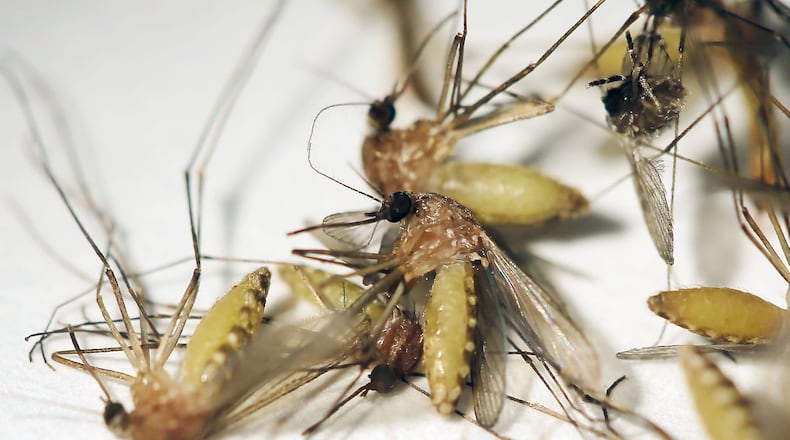Georgia public health officials confirmed a human case of West Nile virus in DeKalb County, the first known human case in the county since 2020.
The DeKalb County Board of Health identified the patient as a man in his 20s who lives in the southwest area of DeKalb County. A spokesperson for the DeKalb health district said the man is recovering at home without complications.
The Board of Health officials are also investigating two additional, unrelated West Nile cases in the Lake Claire and the North Druid Hills areas of the county. These two people are also recovering at home.
The virus, which is the leading cause of mosquito-borne disease in the continental United States, is particularly dangerous during mosquito season, peaking from August to September.
There are a handful of West Nile cases in Georgia every year. There had been a total of eight confirmed human cases in Georgia this year so far, according to the Centers for Disease Control and Prevention. The cases include one in the following counties: Cherokee, Clayton, Fulton and Decatur (county, not city of Decatur). There have been two cases in Cobb and Muscogee counties.
DeKalb County Board of Health officials said larvicide application in low-lying areas and storm drains have already taken place in several areas throughout the county, including the area where the man infected lives. Larvicide keeps young mosquitoes from becoming flying, biting adults.
In most cases, a healthy immune system can fight off West Nile. But in rare cases — typically involving elderly people, those with compromised immune systems or very young children — the disease can progress and show symptoms such as a fever and rash. In extremely rare cases, the virus can lead to encephalitis or swelling of the brain, and death.
West Nile is most often carried in Georgia by the Southern house mosquito. These mosquitoes like it dry. But after heavy rains, mosquitoes can multiply. Stagnant water can be a breeding ground for mosquitoes.
Georgia is home to 63 mosquito species. And when it comes to battling mosquitoes of all kinds, vigilance is the key, according to Elmer Gray, an entomologist with the University of Georgia Cooperative Extension Service. For example, mosquitoes need standing water to reproduce, so eliminating sources of standing water in yards and landscapes can help reduce mosquito breeding.
Tips to avoid being bitten by mosquitoes:
Use an insect repellent containing DEET, picaridin, oil of lemon eucalyptus or IR3535. Apply according to label instructions.
Spray clothing with products containing permethrin. Also apply according to label instructions.
Wear long-sleeved shirts, long pants and socks when outdoors, particularly at dawn and dusk and in areas with large numbers of mosquitoes.
Reduce outdoor exposure at dawn and dusk, when the mosquitoes that transmit West Nile virus are most active.
About the Author
Keep Reading
The Latest
Featured





